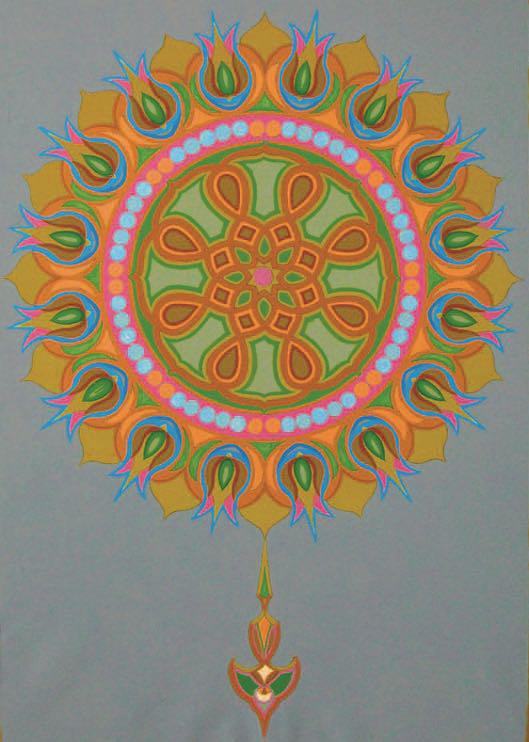Try GOLD - Free
Quantum Physics & Indian Philosophy
Philosophy Now
|October/November 2025
Punit Kumar and Sanjeev Kumar Varshney look into entangled worlds.

Our deepening exploration of the quantum world reveals intriguing parallels between subatomic phenomena and Indian philosophy. While each offers a distinct perspective, together they weave a narrative that challenges traditional boundaries and redefines our understanding of reality.
Quantum physics, with its principles of superposition, entanglement, and the observer effect, has disrupted classical notions of a deterministic universe. Quantum pioneers such as Heisenberg, Schrödinger, and Bohr revolutionized science by introducing both uncertainty and the observer as intrinsic aspects of reality. But questions remain. For instance, does observation merely reveal the quantum world, or does it actively shape it – and how? This enigma highlights the intricate relationship between consciousness and quantum mechanics, sparking a dialogue that transcends conventional scientific inquiry.
Against this backdrop some of the central ideas from Indian philosophy provide profound insights. Traditions such as Vedanta and Samkhya have long explored the interconnectedness of all things and posited consciousness as the essence of reality, so these frameworks resonate deeply with themes emerging from quantum physics, thus bridging ancient wisdom and modern science.
The Quantum Frontier
This story is from the October/November 2025 edition of Philosophy Now.
Subscribe to Magzter GOLD to access thousands of curated premium stories, and 10,000+ magazines and newspapers.
Already a subscriber? Sign In
MORE STORIES FROM Philosophy Now

Philosophy Now
Books
Lucy Weir takes a wheel of healing for an intellectual spin, Frederik Kaufman examines a theory of the origins of equality, and Frank S. Robinson doubts a holistic vision of life, the universe, and everything.
14 mins
October/November 2025

Philosophy Now
Moral Decision-Making for a Job Search
Norman Schultz wonders when working is wrong.
14 mins
October/November 2025

Philosophy Now
The Mediation of Touch
A conversation between Emma Jones and Luce Irigaray.
15 mins
October/November 2025

Philosophy Now
Edward Gibbon (1737-1794)
John P. Irish considers some principles of history through the history of a historian.
11 mins
October/November 2025

Philosophy Now
Karl Sigmund
is an emeritus professor of mathematics at the University of Vienna. He has made major contributions to evolutionary game theory and to the history of the Vienna Circle, who met regularly in Vienna from 1924-1936. Katharine Mullen talks with him about mathematics, and about the Vienna Circle.
5 mins
October/November 2025

Philosophy Now
Can Al Teach Our Grandmothers To Suck Eggs?
Louis Tempany wonders whether the problem is with the machines or with us.
7 mins
October/November 2025

Philosophy Now
Revisiting the Ontological Argument
Raymond Tallis contends that a definition of God cannot necessitate God's existence.
7 mins
October/November 2025

Philosophy Now
What My Sister Taught Me About Humanity
Lee Clarke argues that we need a more inclusive view of moral personhood.
13 mins
October/November 2025
Philosophy Now
Macmurray on Relationship
Jeanne Warren presents aspects of John Macmurray's philosophy of the personal.
4 mins
October/November 2025

Philosophy Now
Forced Vaccination
Naina Krishnamurthy asks if it's ethical or egregious.
8 mins
October/November 2025
Listen
Translate
Change font size
